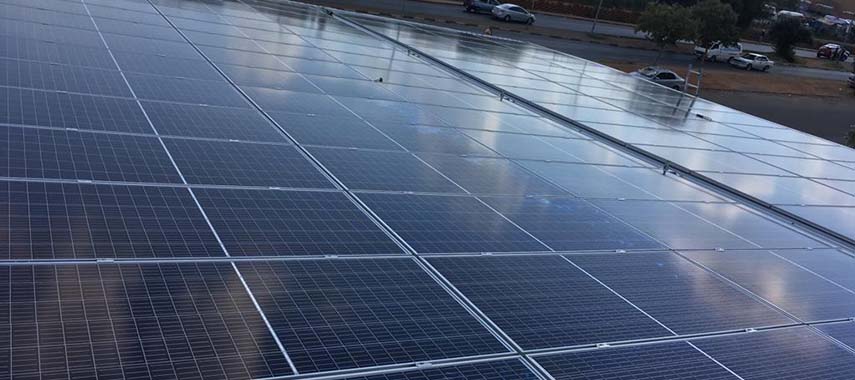Vodacom has installed solar panels capable of generating up to 34kW of power, which will supplement the energy supply of its Randburg base station controller.
The new solar panels will help generate more than 50 000kWh of energy on an annual basis to power the Randburg base station controller.
The base station, through solar energy generated by the newly installed solar panels, will help reduce carbon footprint, lower its electricity usage and reduce the base station controller’s reliance on batteries, in the event of load-shedding.
The development is aligned to Vodacom’s sustainability strategy of co-creating a digital society in a manner that will not be harmful to the environment. Vodacom’s primary source of energy is electricity from the grid which is generated from coal, hence the company’s main source of greenhouse gas (GHG) emissions is from the use of electricity to power its infrastructure.
The challenge with GHG emissions is that it causes climate change, resulting in increased extreme weather events such as floods and drought. This will have a dire impact on communities if not mitigated or managed.
Further, South Africa has in recent times been impacted by inconsistent supply of electricity, with capacity constraints resulting in load-shedding, which is has an impact on network reliability and operational costs. Hence, the most notable feature of the solar panels is its ability to reduce the load on the station controller’s batteries.
Takalani Netshitenzhe: chief officer: corporate affairs at Vodacom Group, says: “The continuation of our investment in cleaner sources of energy shows Vodacom’s commitment to the sustainable growth of our operation and sustainability strategy where the protection of our planet remains key.
“In the past, we’ve installed solar panels at Vodacom offices as well as in our network infrastructure, however using solar energy to power our base station controllers is an area of opportunity for us.”
Netshitenzhe says Vodacom plans to rollout similar energy-saving solar power installations to base station controllers across the country, in the near future. All of which forms part of the mobile network operator’s sustainability drive to minimise its environmental impact and contribute towards the network’s goal of reducing its carbon footprint.

